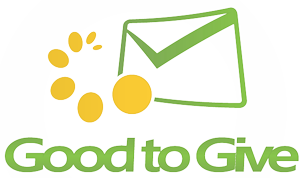The Latest Trends & Innovations In Gift Aid Management

How To Use Email Marketing To Stay In Touch With Your Members
July 20, 2024
Building Financial Literacy in Communities: Insights from Ken Okoroafor of The Humble Penny
September 21, 2024Gift Aid, a significant scheme in the UK, allows charities to reclaim tax on donations made by UK taxpayers, adding substantial value to charitable contributions.
As the philanthropic landscape evolves, advancements in technology and strategic management are transforming how this scheme is administered, ensuring it remains efficient, transparent, and maximally beneficial.
Digital Transformation
One of the most notable trends is the digitalisation of processes. Historically, managing Gift Aid was a laborious task, involving copious amounts of paperwork and manual data entry, which was not only time-consuming but also prone to errors.
Charity organisations often struggled with the complexities of compliance and record-keeping, diverting valuable resources away from their core missions. Today, innovative software solutions automate many of these processes, significantly reducing administrative burden and human error.
There are comprehensive platforms that offer end-to-end management, from capturing donor declarations online to the seamless submission of claims to HMRC. These advanced systems also provide analytics and reporting features, enabling charities to gain better insights into their funding streams.
As a result, the entire process is made seamless and error-free, allowing organisations to focus more on their impactful work rather than tedious administrative tasks.
How GoodtoGive Can Help
GoodtoGive offers comprehensive services tailored to facilitate seamless donation handling for charities and churches.
Our versatile platform enables organisations to manage all aspects of donations through various channels including mobile apps, specially designed envelopes, on-site scanners, and online donation tools.
Additionally, our declaration management and marketing tools streamline the process, ensuring every donation is efficiently tracked and eligible for the scheme.
Enhancements in Donor Experience
Innovations are also shaping the donor experience, making it easier and more intuitive for individuals to contribute and sign up for Gift Aid.
Online and mobile-friendly donation forms now integrate declarations, allowing donors to effortlessly add Gift Aid to their contributions with just a few clicks. This seamless integration not only simplifies the donation process but also maximises the potential financial benefits for the receiving charities.
Additionally, data analytics tools are being leveraged to personalise donor engagement, ensuring donors are well-informed about the impact of their donations and the additional value provided by this scheme.
Detailed reports and interactive dashboards can now show precisely how donations are being utilised, highlighting success stories and real-world outcomes. This transparency fosters a deeper connection between donors and the causes they support, encouraging continued generosity and fostering long-term relationships with charitable organisations.
Furthermore, these tools can analyse donor behaviour and preferences, tailoring communications and outreach efforts to align with individual interests and giving patterns.
By understanding what motivates each donor, charities can create more effective campaigns and appeals, ultimately leading to increased support and more significant community impact.
Integration with Fundraising Platforms
Another trend is the integration of Gift Aid functionalities with popular fundraising platforms. Many third-party fundraising sites now include built-in options, which automatically prompt donors to declare eligibility.
This integration ensures that charities maximise their claims without needing separate processes for different donation streams. As a result, charities can focus more on their core missions rather than administrative tasks. Moreover, these platforms not only facilitate smoother transactions but also maintain compliance with HMRC regulations, providing peace of mind for charities and donors alike.
This compliance is crucial, as it helps avoid potential legal and financial repercussions that could arise from incorrect handling of donations. In addition, some platforms offer detailed reporting features, allowing charities to track their claims and donor contributions more effectively.
By leveraging these advanced tools, charities can optimise their fundraising efforts and ensure that every donation goes further to support their causes.
AI and Machine Learning Applications
Artificial intelligence (AI) and machine learning are beginning to revolutionise this field by predicting donation patterns and identifying potential compliance issues before they arise.
By analysing historical data, AI algorithms can forecast revenue, helping charities plan their finances more accurately and manage their resources more efficiently. This predictive power enables charity organisations to anticipate financial trends, allowing for more strategic allocation of funds toward their missions and goals.
Machine learning models can also flag irregularities in donation patterns, suggesting potential auditing areas and ensuring that all claims are legitimate and accurate. By continuously learning from new data, these models become increasingly adept at detecting anomalies, thereby reducing the risk of fraud and errors.
Furthermore, by automating complex data analysis tasks, AI and machine learning free up valuable time for charity staff, allowing them to focus more on outreach and donor engagement activities.
Ultimately, the integration of AI and machine learning holds the promise of enhanced transparency, efficiency, and accountability in the charitable sector.
Blockchain Technology for Transparency
Emerging technologies like blockchain are being explored to enhance transparency and trust in processes. Blockchain’s decentralised and immutable ledger can provide a secure and transparent record of all donations and Gift Aid claims, ensuring that all transactions are verifiable and tamper-proof.
By using blockchain, every donation can be traced from the donor to the beneficiary, creating an auditable trail that is highly resistant to fraud. This not only increases donor confidence but also ensures compliance with regulatory requirements.
Additionally, the automation capabilities of blockchain can streamline administrative tasks, reducing the time and cost associated with managing claims. As a result, charities can focus more on their core missions rather than on bureaucratic processes.
Training and Capacity Building
To maximise the benefits of these innovations, there is a growing emphasis on training and capacity building within the charity sector. Organisations are investing in skilling their staff to effectively use new technologies and stay updated with the latest trends.
This includes not only understanding the technical aspects but also grasping the strategic implications of these changes. Workshops, webinars, and certification courses are becoming more prevalent, equipping charity professionals with the knowledge and tools to optimise their operations.
Additionally, many charities are forming partnerships with tech firms and industry experts to ensure their teams are receiving the most up-to-date and relevant training. This comprehensive approach aims to enhance the overall efficiency and effectiveness of operations, ultimately leading to greater financial support for their causes.
Contact GoodtoGive
If you’re a faith-based charity or church looking to maximise your donations, contact our experts at GoodtoGive today! We provide bespoke solutions that help your charity save time and money and increase efficiency in day-to-day operations.
To learn more about our services, contact a team member on 020 7731 2041 or send us an enquiry here.





